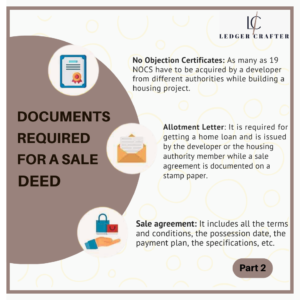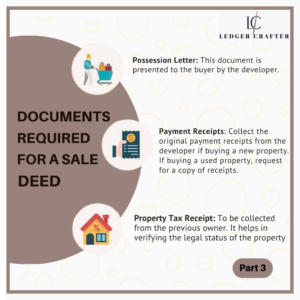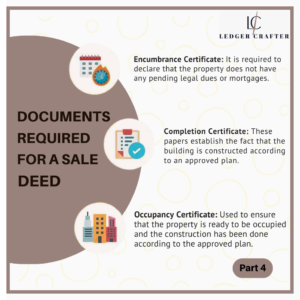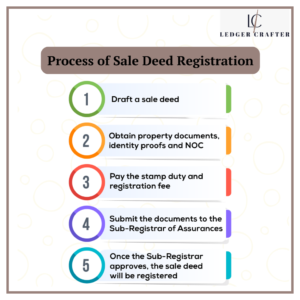Sale Deed
- Get Guaranteed sale deed drafting under 3 days or receive a full refund
- Fastest turnaround time to draft a sale deed by India’s senior lawyers

- Overview - Sale Deed
- Advantages of Sale Deed
- Documents Required for Sale Deed
- Process For Getting a Sale Deed
What is Sale Deed?
A sale deed is a legal document that showcases the transfer of title, rights, and ownership of a property from a seller to a buyer.
It is the most important document that legally reports the proof for the buyer and seller. It is an essential document for both the buyer or the transferee and the seller or the transferor. The purchase or sale of the property is not legally complete until a sale deed agreement is signed between the buyer and the seller. Normally, a sale deed agreement is signed only after both the parties are satisfied and comply with the terms and conditions.
Advantages of a Sale Deed
The sale deed registration protects the rights of both the buyer and the seller. A specific, well-drafted deed will avoid ambiguity and minimise legal risks.
Defines The Area
For the buyer, a key advantage is having a well-defined description of the property being purchased, including the square footage and the location.
A few additional benefits of a sale deed registration are as follows:
- As a sale deed form concludes the sale into a legal document, it is enforceable by the law
- A sale deed reduces troubles as all money due can be specified in the document. This makes the sale process more stable and comfortable. Additionally, it assures that your property is not taken for granted, given the existence of a registered and stamped legal document.
Documents Required for Drafting Sale Deed Agreement




What is the Process For Getting a Sale Deed?

The buyer of a property must draft a sale deed after obtaining the necessary documents from the seller. It is advisable for the buyer to seek the assistance of a legal professional or advocate to verify that the seller is the rightful owner of the property and possesses the requisite title deeds for the sale.
The legal expert will do drafting sale deed, incorporating all the essential clauses and components. Once drafting sale deed is done by either the buyer or their appointed advocate, the sale deed is then submitted to the seller. Upon the seller’s approval of the contents of sale deed, the document is finalized, allowing both parties to proceed with the sale deed registration at the sub-registrar office.
Sale Deed FAQs
A sale deed acts as the main legal document for confirming sale and transfer of ownership of property in support of the buyer, from the seller.
The owner of the property will prepare the sale deed. They have the right to prepare and alter the sale deed. So, it is one of the most important documents in buying or selling a home.
The buyer is the one who pays the stamp duty and the registration charges. The seller needs to clear all the payments that are related to the property. The property might be property tax, water, and electricity charges before the sale deed is signed.
A sale deed is a legal document that confirms the transfer of ownership from the seller to the buyer. A registry, on the other hand, is a government record of ownership of the property.
The sale deed is valid from the date of execution, and it remains valid for the entire lifetime of the property.
Yes, a deed of sale is considered proof of ownership of the property, provided it is duly registered.
A deed of sale does not need to be notarised in India. However, it must be registered with the local Sub-Registrar’s office to be legally valid.
There are two types of sale deeds: Absolute Sale Deed and Conditional Sale Deed.
The cost of processing a deed of sale varies depending on the state and location of the property. It generally includes stamp duty, registration fee, and legal fees.
No, once a sale deed is executed and registered, it cannot be canceled unilaterally by the seller. It can only be canceled by mutual agreement between the buyer and the seller, and the process involves the execution of a deed of cancellation.
An unregistered sale deed is not considered a valid proof of ownership. However, it can be used as evidence of a contract between the buyer and the seller.
